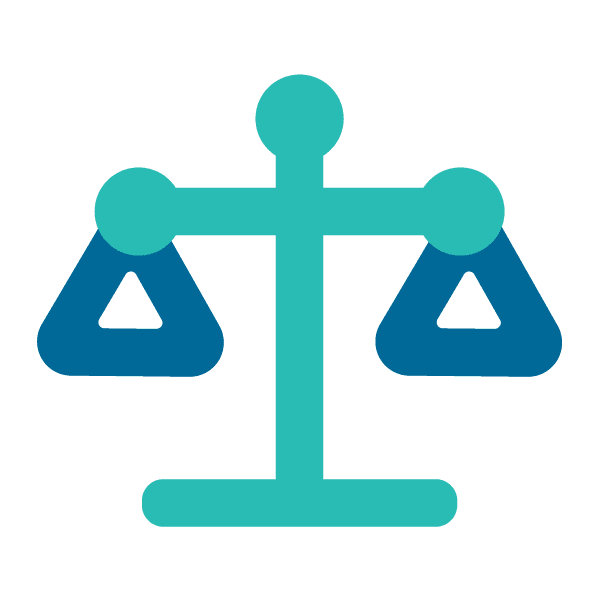Coordinating Committee and Executive Committee
Current Members
Serving through March 2025
Claire Fox, Yale University; Cynde Moya, Swinburne University of Technology; Larry Masinter, ACM
Serving through March 2026
Eric Kaltman, University of Alberta; Scott McCoy, National Film and Sound Archive; Talya Cooper, New York University; Brenna Edwards, University of Texas at Austin, Lorena Ramirez-López, Webrecorder
Past Members
Dianne Dietrich, Cornell University (2022-2024); Stan Gunn, University of Virginia (2022-2024); Wendy Hagenmaier, Georgia Tech/Yale (2022-2024); Daniel Johnson, Notre Dame (2022-2024); Eric Kaltman, California State University Channel Islands (2021-2023); Lauren Work, University of Virginia (Treasurer, 2021-2022); Seth Anderson, Yale University (2021-2022); Neil Chue Hong, Software Sustainability Institute (2021-2022); Paula Jabloner, Computer History Museum (2021-2022); Monique Lassere, Harvard Library (2021-2022); Cynde Moya, Australia’s Academic and Research Network (AARNet) (2021-2022)
Background
The SPN Coordinating Committee succeeds the SPN Steering Committee to build on the work accomplished during the incubation period (2019-2020) and to address the next phase of development needed for SPN as a membership organization. A primary function of the Committee will be to provide a robust lattice of clear and effective connections between members, topics, resources, and directions, which is a challenge to maintain in a nationally and globally distributed collaborative organization.
The responsibility for maintaining these connections through SPN’s ongoing change and evolution makes this committee the core body of governance of SPN. SPN’s broad purpose and direction is articulated in its mission statement, which is reviewed and revised as appropriate by the Coordinating Committee. Its day-to-day operations and ongoing legal and policy matters are staffed by individuals paid through SPN’s host organization (Educopia), with the budget for their compensation and other operational costs funded by member dues and any other applicable, recurring resources.
Who is eligible to join
- The Coordinating Committee is a large body, including voting members and non-voting ones.
- The majority of voting committee members are elected by the voting members of SPN from the list of formally designated representatives of “sustaining organization members” (those entities that pay dues to SPN).
- A smaller proportion of committee members are elected as “at large” members with all registered SPN participants eligible to be nominated.
- Members serve for two-year, staggered terms.
- Non-voting members include ex-officio volunteer experts selected by the committee to assist for limited, defined terms on matters for which they can bring special knowledge and experience, especially on topics of strategic importance.
Who is eligible to vote
All registered SPN participants may nominate and vote in the annual election.
Purpose
The Coordinating Committee:
- annually reviews and approves organizational goals and strategies,
- provides high-level guidance to the staff on day-to-day operations for the coming year, reviews and approves budgets developed and proposed by staff, and
- reviews and sets steps to ensure continuity of SPN activity.
Meetings
In addition to the annual meeting for setting organizational goals and strategies as noted above, the Coordinating Committee convenes two meetings scheduled at appropriate intervals during the year. Those meetings also include public forums for open discussion of any relevant matters. All Coordinating Committee meetings are open to the public, including all registered SPN participants.
Structure and Purpose
The committee establishes standing sub-committees, commissions and retires time-limited work groups, and hears reports, all on matters of strategic significance to SPN. The Community Engagement Collaborative keeps the Coordinating Committee informed. The Coordinating Committee may request updates, information, and outcomes from the Community Engagement Collaborative.
Officers may be elected by the Coordinating Committee from its voting members to serve in specific roles that will make the Coordinating Committee’s activities more efficient (examples might include a presiding officer, a recording secretary, and similar functions).
The Executive Committee comprises a smaller group of voting members of the Coordinating Committee elected by and reporting to the full Coordinating Committee. It is charged to undertake more detailed and often time-sensitive tasks and assignments that address issues related to the budget, membership, and administration of SPN. The Executive Committee meets as needed and provides updates at the Coordinating Committee’s regular meetings.
The Coordinating Committee in part has the responsibility to define and achieve common goals that the community supports and to provide clarity across SPN. As a starting point, the Coordinating Committee will develop answers to Lencioni’s six key questions and revisit them on regular basis:
- Why do we exist?
- How do we behave?
- What do we do?
- How will we succeed?
- What is most important, right now?
- Who must do what?
The answers the coordinating committee develops are in the form of deliverables (regularly reviewed and revised):
- As previously noted, the SPN mission statement
- Statements of the character of SPN in the national and global preservation community, including its values, its standards for relationships with other entities, and its expectations for ethical behavior in general and between its own members operationally
- Clear delineation of its scope of work and range of interests
- Definition of how to measure success, overall as well as with each more focused undertaking
- Clear prioritization within its agenda of work, based on the balance of importance and resources available to enable progress in specific efforts
- Defined roles and responsibilities for all involved
Coordinating Committee Goals
2023 (Coordinating Committee Term: March 2023 – February 2024)
- Begin creating multi-year financial plan
- Review, revise, and articulate membership benefits
- Articulate near-term strategic goals for SPN, comprising in-progress and high-priority backlog actions for 2023-2026
- Revise SPN Publication Policy
- Clarify relationships between SPN and software-as-a-service providers
- Create method for Coordinating Committee to provide strategic guidance to working groups
2024 (Coordinating Committee Term: March 2024 – February 2025)
- Finish creating multi-year financial plan
- Articulate a membership growth and retention strategy
- Clarify or formalize relationship(s), partnership(s), or collaborations between SPN and EaaSI, and SPN and Software Heritage
- Partner with the Law and Policy Working Groups to identify the type of support that’s needed for a SPN Working Group to apply for a grant-funded project
- Create and deliver at least two SPN publicity and outreach presentations for administrator audiences
2025 – 2026 (Coordinating Committee Terms: March 2025 – February 2026 and March 2026 – February 2027)
- Create strategy to recruit diverse slate of Coordinating Committee nominees and members
- Plot SPN work and outputs on a timeline to assess and demonstrate impact and clarify scope of work
- Pilot a formal cross-institutional expertise/labor-sharing model for software preservation and curation
- Refine criteria for starting or supporting affiliated projects
- Explore how a formal community roadmapping process could benefit SPN in the medium-term
Inactive Committees
Steering Committee (inactive)
The SPN Steering Committee was launched in March 2019 on the foundation of work completed by volunteer coordinators in 2016-2018. Sustaining Members of the SPN seed-funded period each appoint one staff member to the Steering Committee. Steering Committee members have voting rights and responsibilities. The Steering Committee works with Educopia Incubation Services to establish an operating charter formalizing roles and responsibilities, develop and maintain a set of program objectives and success metrics, coordinate Working Group activities (including establishing mechanisms for onboarding, evaluating, and sunsetting WGs over time), oversee the budget, and help to prioritize services and manage scope. The Steering Committee will also help identify appropriate funding models and recruit strategic partners.
2019-2020 Members
Paula Jabloner, Computer History Museum; Dianne Dietrich, Cornell University; Sophia Lafferty-Hess, Duke University; Wendy Hagenmaier, Georgia Tech; Nancy McGovern, MIT; Seth Erickson, Penn State University; Neil Chue Hong, Software Sustainability Institute; Michael Olson, Stanford University; Matthew McEniry, Texas Tech University; Melissa Levine, University of Michigan; Aaron Choate, University of Texas at Austin; Chip German, University of Virginia; Seth Anderson, Yale University
2016-2018 Members
Brandon Butler, University of Virginia Libraries; Susan Malsbury, New York Public Library; Nicholas Taylor, Stanford University; Aliza Levanthal, Sasaki Associates; Zach Vowell, CalPoly University; Jessica Meyerson, University of Texas at Austin
Subcommittees
Coordinators, Membership & Executive Subcommittee: Wendy Hagenmaier, Georgia Tech; Seth Anderson, Yale University
Coordinators, Research & Innovation Subcommittee: Nancy McGovern, MIT; Aaron Choate, University of Texas at Austin
Advisory Committee (inactive)
Supporting Members of the SPN seed-funded period each appointed one staff member to the Advisory Committee. The Advisory Committee does not have voting rights and responsibilities. This Committee advises the Steering Committee, provides feedback and discussion on all aspects of program and organizational design, and helps to ensure that the initiative is designed to represent the interests of institutions of all types and sizes involved in software preservation and emulation.
Past Members
Monique Lassere, Harvard University; Vicky Steeves, New York University; Fernando Rios, University of Arizona; Tracy Popp, University of Illinois; Kevin Schlottmann, Columbia University
Policies & Procedures Committee (inactive)
The Policies and Procedures committee will enhance existing draft processes and create new ones to address gaps identified by SPN membership and working groups. The SPN community has identified the following priority policies and procedures gaps and prioritized them:
- Working group member expectations
- Procedures to support an accountable administrative or leadership body
- Working group recruitment and onboarding process
- Research data management procedures
- Defining relationships between affiliated projects and SPN
- Process for publishing SPN resources
- Procedure(s) to support and enforce code of conduct
The committee must take into consideration the suggested prioritization established by membership during 2019 strategic planning but may expand the list of policies and procedures to draft beyond that feedback. The committee must present an action plan within 2 weeks of their first meeting to advisory and steering committees, then after incorporation of any feedback, send to Steering for a vote. The committee should aim to have an action plan in place within a month of the committee’s formation.
Past Members
Ethan Gates, Yale University; Joy Perrin, Texas Tech University; Jess Farrell, Educopia Institute; Jessica Meyerson, Educopia Institute
Join Us
The Software Preservation Network (SPN) is a collective action effort ensuring long term access to software through community engagement, infrastructure support, and knowledge generation. Network participation includes colleagues from design firms, public libraries, history of computing museums, research data archives, university libraries and the open source software community.
Learn more about the benefits of membership and sponsorship on the Get Involved page.


